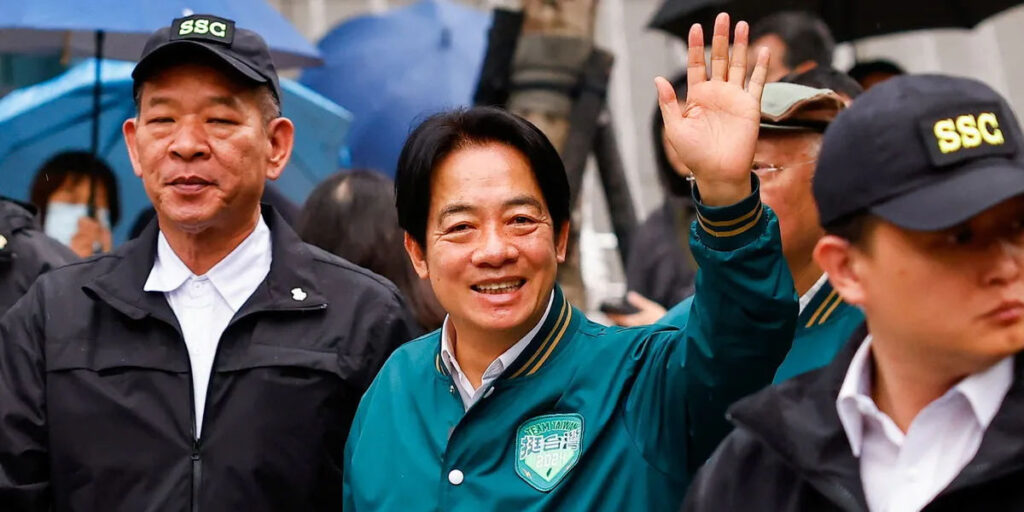In an emphatic display of democratic defiance, Taiwan has once again boldly stood up to the pressures and threats of Communist China, marking a significant victory not only for itself but also for the Western world’s ideals of freedom and self-governance. The recent presidential election in Taiwan, resulting in the victory of Lai Ching-te, is a testament to the island’s unwavering commitment to charting its own course, distinct from the shadow of Beijing’s influence.
The election was a historic moment for Taiwan, as Lai Ching-te, from the Democratic Progressive Party (DPP), secured a landmark third consecutive term for his party. This victory is significant in the context of the island’s strained relationship with mainland China. Beijing, which has never ruled Taiwan but claims it as its territory, has consistently denounced the DPP as a separatist force. The election of Lai, who secured 40% of the vote in a competitive three-way race, is a clear rebuke to Beijing’s intimidation tactics and an affirmation of Taiwan’s democratic values.
Lai’s victory carries profound geopolitical implications. As he stated in his victory speech, “Taiwan has scored the first victory for democracy” in the global election year of 2024, setting a precedent for democratic resilience worldwide. Despite Beijing’s hardline stance, with a spokesperson from China’s Taiwan Affairs Office asserting that the election results would not alter their determination to bring Taiwan under its control, Taiwan has demonstrated its resolve to maintain
its sovereignty and democratic integrity. This assertion of self-rule in the face of Beijing’s aggressive posture is not just a local triumph but a beacon of hope for democratic societies everywhere.
The tensions between Taiwan and China are not just political but also deeply rooted in issues of identity and national sovereignty. The DPP’s victory underlines a growing sense of Taiwanese identity that is distinct from mainland China. The election results, with Lai beating Hou Yu-ih of the Kuomintang (KMT) by a significant margin, underscore this sentiment. The DPP’s platform, advocating for Taiwan’s separate identity and rejecting China’s territorial claims, resonates strongly with the Taiwanese electorate, especially in the context of Beijing’s increasing assertiveness in the region.
The international community, particularly the United States, has closely watched the developments in Taiwan. The Biden administration has expressed its support for Taiwan’s democratic processes and called for a peaceful resolution of differences, free from coercion and pressure. This stance is crucial as it balances the need to support a democratic ally while managing a complex and sensitive relationship with China.
Taiwan’s victory in this election is more than a political statement; it’s a stand against the dark shadows of authoritarianism cast by China. It showcases the island’s commitment to maintaining its democratic way of life, despite Beijing’s unrelenting pressure and threats. As Lai prepares to take office, he faces the challenge of navigating a complex international landscape, where Taiwan’s role is increasingly significant both as a symbol of democratic resilience and as a central player in global economic and geopolitical affairs.
In conclusion, Taiwan’s recent presidential election is a landmark event that signifies the island’s defiance against Communist China’s pressures and threats. It is not just a victory for Taiwan but a significant triumph for democratic values and the principles of self-determination, serving as an inspiration for nations worldwide. As Taiwan continues to assert its identity and sovereignty, it remains a critical beacon of democracy in a region shadowed by the looming presence of an authoritarian giant.
